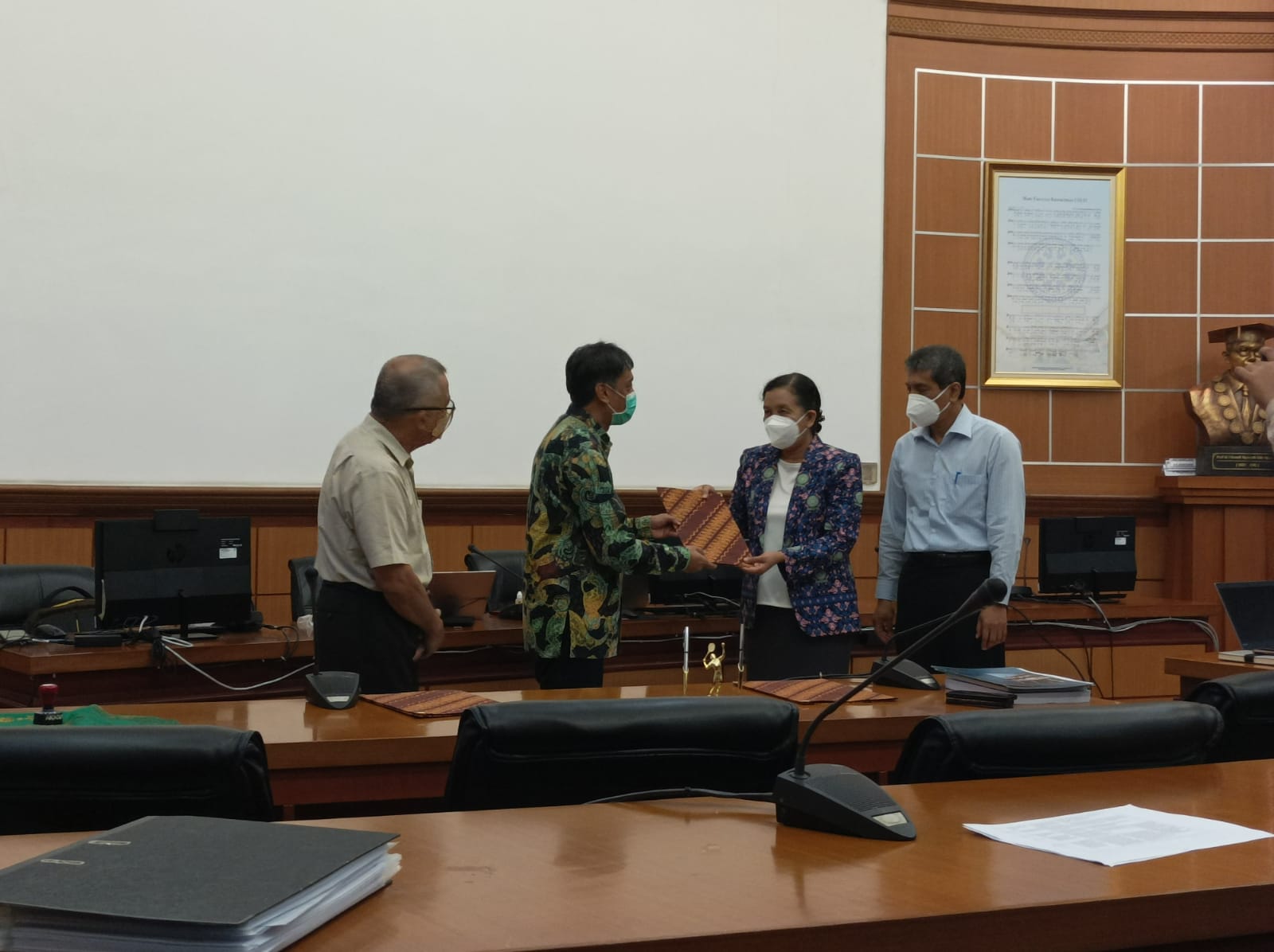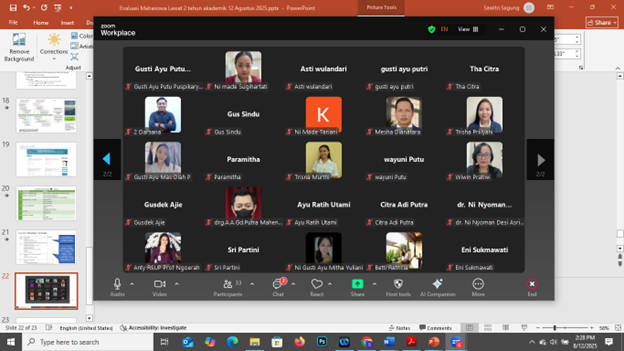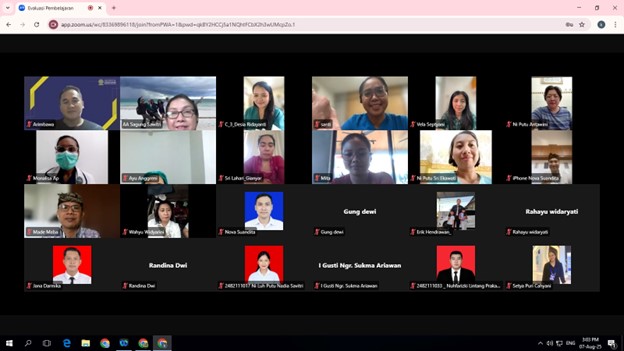Field assessment of the Master of Public Health Study Program
To maintain and improve the quality of education and services at the Master of Health Sciences Study Program, Faculty of Medicine, Udayana University, the Independent Accreditation Institute for Health Higher Education (LAM-PTKes) conducted a field assessment held on April 25-27 2022. Located in the Dr. AA Made Djelantik, field assessment by LAM-PTKes with 2 assessors, namely: Dr. drg Setya Haksama, M. Kes (Assessor 1) and Dr. M. Furqaan Naiem, M. Sc., Ph. D (Assessor 2).
The event began with remarks from the Dean of the Unud Medical Faculty, Dr. dr. Komang Januartha Putra Pinatih, M.Kes and opened by the Chancellor of Unud Prof. Dr. Ir. I Nyoman Gde Antara, MEng IPU.
This activity was also attended by the President Director of Sanglah Hospital, President Director of Unud Hospital, Head of LP3M Unud, Chairman of LPPM Unud, Head of USDI, Head of Unud Library, Director of Postgraduate, Head of Bali Provincial Service, Head of UPTD. Health Training Agency of the Bali Provincial Health Office, Head of the Bali Province Port Health Office, Chair of the Indonesian Association of Public Health Experts in Bali Pengda, Chair of P3KKMI, Deputy Deans, Chair of the Udayana Alumni Association, FK Commissariat and MIKM Special Commissariat, Study Program Coordinator, Head of Department, Coordinator Units, Administrative Coordinators and Sub-Coordinators, as well as permanent Lecturers in the Master of Public Health Sciences, Faculty of Medicine, Udayana University.
The assessment agenda is:
1. Presentation of Performance Documents and UPPS/Study Program LEDs and discussions. Confirmation regarding macro policies, system development, governance, management systems, reported institutional achievements, and UPPS/Prodi development plans.
2. Assessing the learning process on aspects of lectures and tutorials: Laboratory and practical facilities, including supporting infrastructure and documents.
3. Discussions and interviews with stakeholder groups (graduate users, puskesmas partners, hospital partners, other institutions).
4. Interviews with alumni, education staff, lecturers and teaching staff and students.
5. Observation of infrastructure




MEDICAL FACULTY